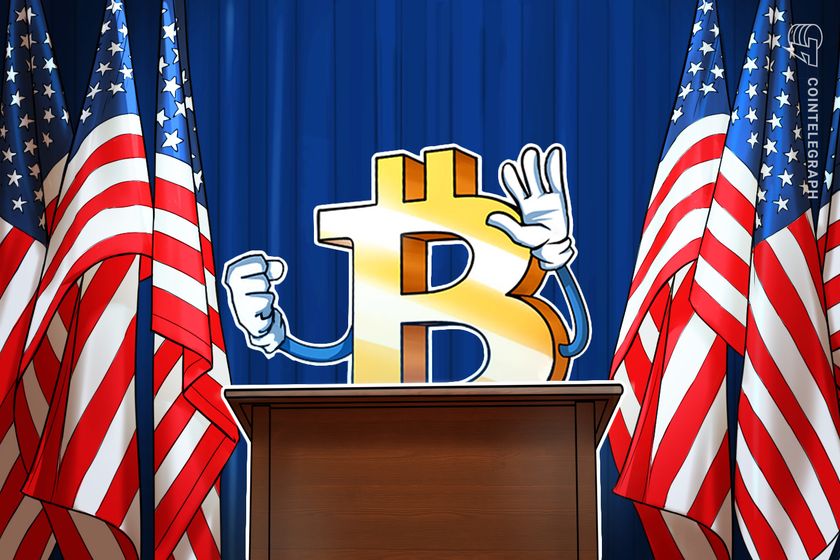
Ether price struggles to maintain support as regulatory challenges and network issues weigh
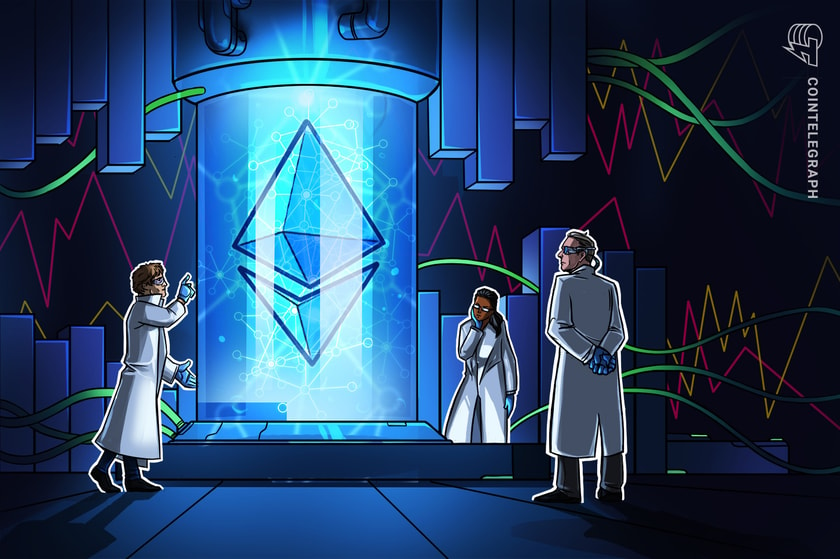
Ether options volume hints at bearish sentiment as the $1,850 support falters.
The Ether (ETH) price has struggled to sustain the $1,850 support since April 21, the same level it held before the rally toward $2,100 initiated on April 13. Investors have reason to question whether there are buyers, considering the 13.5% price correction in six days and the $548 million in leveraged futures longs liquidated between April 19 and April 21.
Firstly, the regulatory environment seems to have gotten stricter for centralized exchanges. Dubai-based Bybit, for instance, announced that all users must complete Know Your Customer (KYC) identity verification for order execution and withdrawals. Before the May 8 update, non-KYC users had a monthly withdrawal limit of 100,000 USD Tether (USDT).
United States-based crypto exchange Gemini announced on April 21 the upcoming launch of a derivatives platform outside the U.S. The uncertain regulatory environment forced the company to seek alternative regions, though only clients from selected regions can access the new service. The list excludes the U.S., Canada, and most European countries except Switzerland.
Ethereum network is navigating in troubled waters
Given its lower use in decentralized applications (Dapps), the Ethereum network is probably experiencing its own problems. For starters, total deposits on Ethereum’s smart contracts in ETH terms plunged to their lowest levels since August 2020. Such an analysis already excludes the effects of native Ethereum staking, which recently started to allow withdrawals.
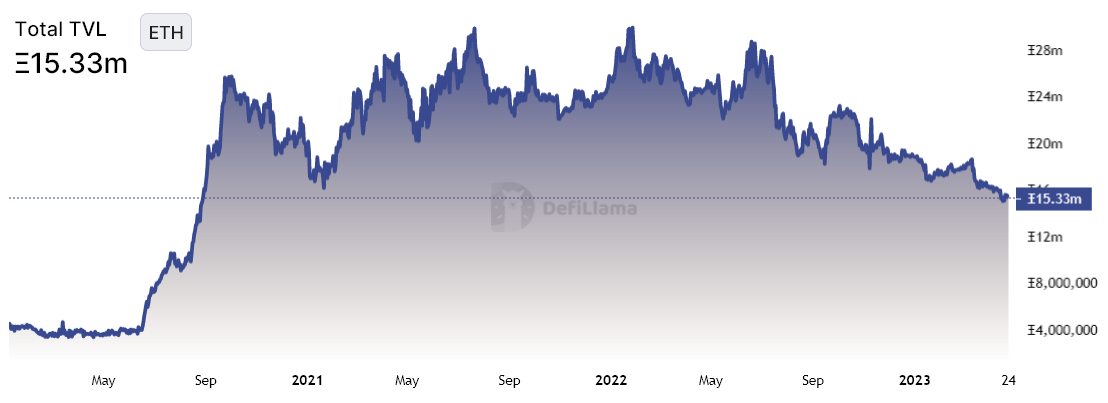
According to DefiLlama data, Ethereum Dapps reached 15.3 million ETH in total value locked (TVL) on April 24. That compares with 22.0 million ETH six months prior, a 30% decline. As a comparison, TVL on BNB Smart Chain in BNB terms declined by 20%, and Polygon network’s MATIC deposits decreased by 11%.
Furthermore, Ethereum network dominance on stablecoin deposits reached its lowest level in more than 12 months at 54%, down from 64% in December 2022. On the other hand, the Tron network was the biggest winner in stablecoins due to its low transaction fee. As a comparison, the Ethereum network’s average transaction fee has been above $4 since February 2023.
Ethereum market share by volume on decentralized exchanges (DEX) peaked at 75% in the week ending March 5 but has steadily declined to 44% in the week ending April 16.
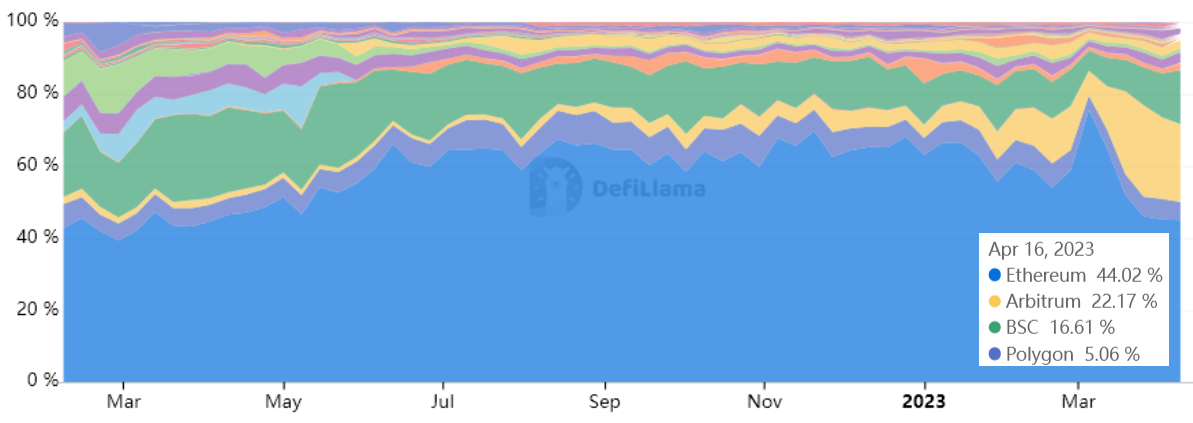
Gainers on DEX trading volumes were Arbitrum, increasing to 22.2% from 7%, and BNB Smart Chain, growing to 16.6% from 5.1% since March 5. One might argue that the success of the Ethereum network’s scaling solution necessarily reflects bullishness for the Ether price, but that relationship is not so direct.
Pro traders are leaning bearish
To understand whether professional traders are pricing higher odds of an ETH price decline, one should analyze the options markets. Traders can gauge the market’s sentiment by measuring whether more activity is going through call (buy) options or put (sell) options. Generally speaking, call options are used for bullish strategies, whereas put options are used for bearish ones.
A 0.70 put-to-call ratio indicates that put option open interest lags the more bullish calls and is, therefore, bullish. In contrast, a 1.40 indicator favors put options, which can be deemed bearish.
Related: Ethereum price lower highs vs. Bitcoin hint at more downside in April
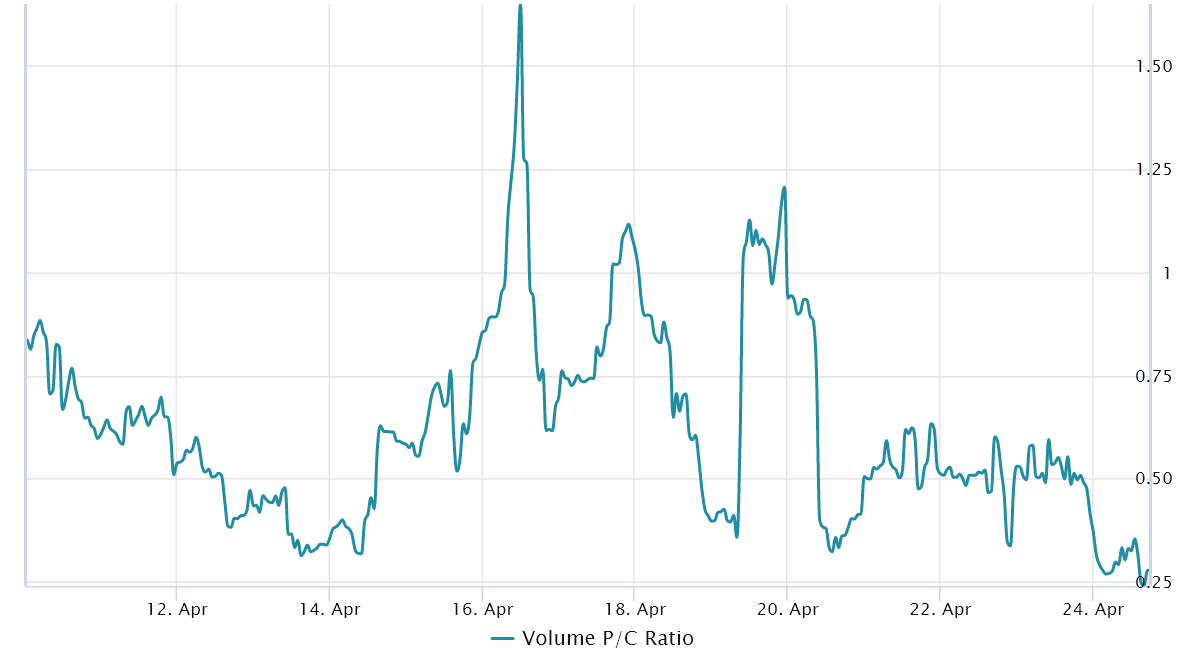
The put-to-call ratio for Ether options volume increased to its lowest level in over three months, indicating excess demand for neutral-to-bearish puts. Currently, the protective put options outnumber the neutral-to-bullish call options by more than four times.
Judging by the uncertain regulatory environment in the U.S. and the impacts of the competing networks, whether or not using second-layer technologies, odds are the Ether price will unlikely be able to sustain the $1,850 support. Derivatives traders clearly reflect the higher probability of negative price movements.
This article does not contain investment advice or recommendations. Every investment and trading move involves risk, and readers should conduct their own research when making a decision.
Go to Source
Author: Marcel Pechman



